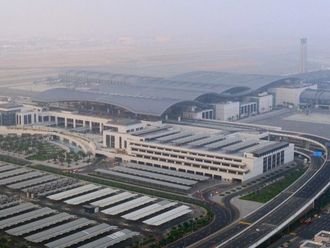
When asked whether he has plans to take out life insurance, Ahmad laughed. "Why would I get one when I won't be able to benefit from it? I'll have to die first before the insurance claim is released."
The married expat who has no children but whose wife is financially dependent, quickly pointed out that he is better off investing his money somewhere else.
Some people don't see the value in life insurance because they think they don't need the death benefit. In the GCC, where many expatriates have no state pension or assured income after retirement, only a few people invest in life insurance plans.
Quoting Swiss Re's latest Sigma report, Phil Ashkuri, UAE head of insurance for HSBC Middle East, said the region has extremely low insurance penetration rates compared to more developed economies. Each GCC state spends under three per cent of per capita GDP on insurance premiums in total, and around 90 per cent of these premiums go to non-life products.
The premium break-up
In the UAE, where total insurance premium per capita is around $1,100 (Dh4,039), life premiums amount to only $100 per head. "The other GCC states spend on average between $200 and $700 per annum, per capita on insurance premiums with a similar percentage split between life and non-life," Ashkuri explained.
"To give some extent, when compared to the combined G7 countries, we see average total premiums at almost $4,000 per capita, of which around $2,400 is attributed to life premiums. Put another way, the most successful life market in the GCC is the UAE where average expenditure is still over 20 times less per head than in the developed world."
"[In other words] not only do we have low insurance penetration in the region, but the insurance coverage that does exist currently is heavily weighted toward non-life needs," Ashkuri added.
Shekhar Krishnamurthy, head of retail assets and liabilities at Emirates NBD, said the market characteristics of the Arab region are quite different from other areas. "The main differences are in terms of the attitude to risk and lack of insurance awareness. The Middle East is a mixture of some rich and some poorer economies. Insurance density and penetration in some of these countries show the low expenditure in life insurance," he said.
Paul Bromley, commercial director at Nexus Insurance Brokers, said the low uptake can be attributed to the "advice gap" in the market, but he noted that more people are beginning to see the value of life insurance. He said there has been growth in life plans over the years, adding that those that provide savings for children are now extremely popular.
So, who needs life insurance? Experts say those who have debts or mortgages should get life insurance to make sure their loved ones won't be financially burdened when they die. "Anyone with debts should ensure they are paid off in the event that they die," noted Steve Gregory, managing partner at Holborn Assets.
The decision
Those who have young children, partners, parents, disabled relatives, siblings who depend on them for money should also get one. "The most commonly recognised requirement of life insurance is indeed for parents with young children. However, it can also apply to couples in which the survivor would be financially stricken by the income lost through the death of a partner, and to dependent adults, such as parents, disabled relatives, siblings or adult children who continue to rely on you financially," Ashkuri said.
"It is also worth remembering that if you plan to marry and have children in the future, then it would make sense to consider life insurance now while you are young and healthy and as the cost of life insurance increases with age," Ashkuri added.
Besides taking care of their loved ones, Bromley said it is equally important that business owners get a life insurance. "How will a person's death affect his business? Is the business dependent upon him financially? A business owner's death can impact on other people," Bromley pointed out.
Even single people should have a life policy in place if they want to be certain that their parents will be looked after. "Most people believe in life insurance — some are just not happy to pay for it. Sadly, their families end up paying for it by suffering financially after the death of their loved one," said Gregory.
"Life insurance solves a number of different problems. For some it's family protection in case one parent is left to raise children alone. For others, it's retirement money planning, leaving income for a widow if a working man dies too young, or an income for both in retirement," he added.
Krishnamurthy said life insurance can provide payouts that dependents can use for funeral expenses, burial costs and medical bills, as well as college education for children. It can also create an inheritance for heirs and a good source of savings. "Some types of life insurance create a cash value that, if not paid out in the event of death, can be borrowed or withdrawn on the owner's request."
For Latha Ganes, an Indian expatriate, life insurance not only provides family protection, but additional savings as well. Ganes and her husband have purchased two life insurance plans which cost them $550 per month.
"We started with a saving and investment plan with life insurance in 2000, paying $300 per month and later started another joint life plan where we pay just around $250 per month," Ganes said.
One of the plans has an investment component and is expected to mature in 2015. Ganes expects to use the lump sum to buy a piece of property in the future.
The life plans provide cover for natural death, critical illness, disability, dismemberment and accidental death. "It's forced savings where you prioritize it first and spend only the remaining," she said.
Is your life insured? Do you think life insurance is important? Why?












